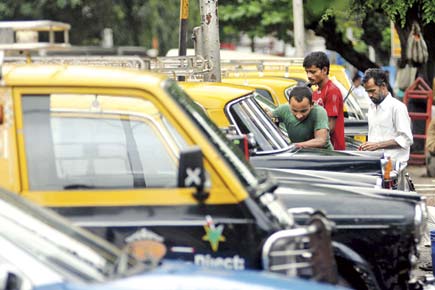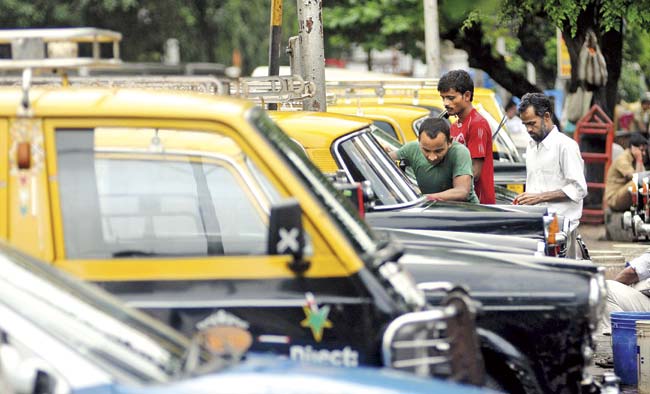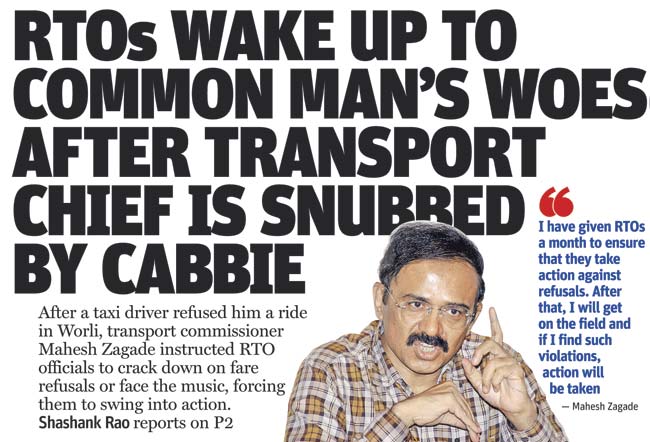Mahesh Zagade had called the taxi union for a meeting after he launched a drive against cabbies who refuse passengers; the union insisted on a meeting to discuss their own demands first

Even as the city’s RTOs jump into action, conducting undercover checks on cab drivers refusing fares, the taxi unions have come back with their own set of demands.
ADVERTISEMENT

RTOs in the city have launched undercover checks on taxi drivers to penalise those who refuse passengers. File pic
In fact, when Transport Commissioner Mahesh Zagade called one of the unions to his office for a brief meeting, the cabbies refused, saying they wanted to meet him for at least two hours and not just for five to ten minutes.

mid-day’s front page report on the issue yesterday
The taxi unions’ googly comes after Zagade recently instructed all the city RTOs to launch a drive against drivers who refuse passengers. mid-day had reported yesterday, that Zagade issued the warning after a cabbie in Worli refused him a month ago (‘RTOs wake up to common man’s woes after transport chief is snubbed by cabbie’).
Unabashed, the taxi drivers instead insist on presenting him with their own set of demands, including higher fares during peak hours, as well as new facilities. On Tuesday, sources in the Transport department confirmed that one of the city’s largest taxi unions led by A Quadros was called for a meeting to discuss several issues, including taxi drivers’ refusal to ply. The sources added that the meeting got cancelled later in the day.
“I had a meeting scheduled with them (taxi union members), but I cannot give two hours on such short notice,” said Transport Commissioner Zagade. A Quadros, leader of the union, said, “We want to meet the new Transport Commissioner for at least two hours in the presence of RTO officers.
There are several demands that need to be addressed.” Quadros added that the taxi drivers wanted to discuss the reasons behind their refusals as well, apart from other issues such as fare structures, job cards, washrooms and other amenities for cabbies.
According to Quadros, if the authorities were to introduce higher fares during peak hours (8 am to 11 am and 6 pm to 9 pm), it would be an incentive for drivers to ply on less popular routes during the rest of the day. The higher fares would balance out any losses they would incur on such routes, making it less likely that drivers would refuse passenger, he explained.
However, even he could not vouch for how effective this approach would be, saying that taxi drivers had their own reasons for refusing passengers. “This shall barely reduce the numbers of refusals, but there is no harm in trying,” said Quadros.
Union members also put forward demands for job cards with rest hours and designated rest areas, to ensure that cabbies can have undisturbed breaks. Earlier, when the taxis still had mechanical meters, the drivers had the option to display an indicator to show they would not ply passengers, union members said, adding that now, when they refused fares, the passengers often fought with them or reported them to the authorities.
 Subscribe today by clicking the link and stay updated with the latest news!" Click here!
Subscribe today by clicking the link and stay updated with the latest news!" Click here!






